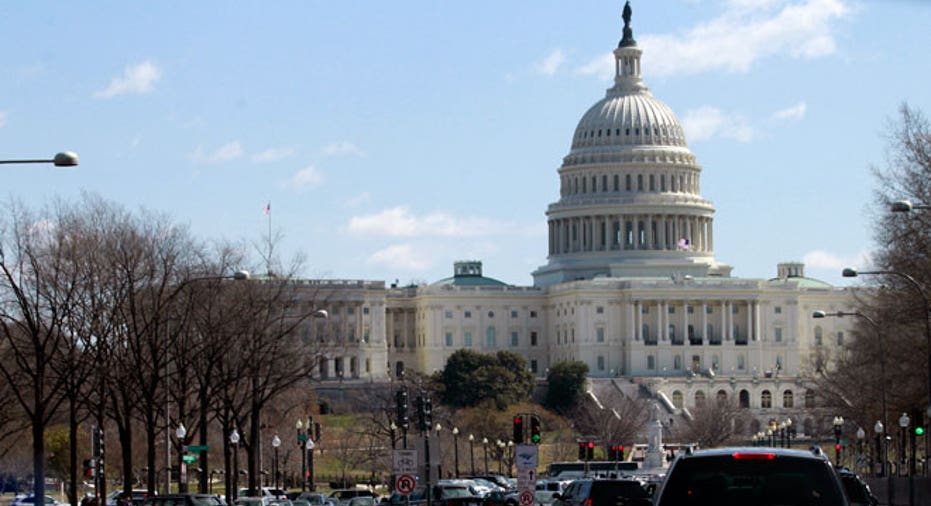Trade Bill Clears Senate, Moves to White House

The Senate on Wednesday cleared legislation that will strengthen President Barack Obama's power to negotiate a Pacific trade deal, ending a weekslong struggle to lift the measure out of the political quicksand that repeatedly came close to trapping it in both chambers.
The legislation, passed 60-38, will give Mr. Obama "fast track" authority that allows him to submit trade deals to Congress for an up-or-down vote without amendments. Negotiators have said that process is crucial to completing the 12-nation trade deal with countries around the Pacific Ocean, known as the Trans-Pacific Partnership.
Already approved by the House, the bill now heads to the White House for Mr. Obama's signature. Its passage delivers a rare legislative victory for the second-term president whose agenda has largely stalled in a Congress now fully controlled by Republicans.
Wednesday's vote capped a fitful campaign that joined the White House, top GOP leaders and centrist Democrats to push through Congress legislation that both ends of the political spectrum opposed. Liberals viewed expanded trade as detrimental to U.S. jobs, while conservative members didn't want to expand Mr. Obama's authority.
"We had plenty of bumps along the road. Frankly, a few big potholes too, " Senate Majority Leader Mitch McConnell (R., Ky.) said on the Senate floor Wednesday. "But we worked across the aisle to get through all of them."
Critics of the Pacific trade deal said Wednesday's vote would diminish lawmakers' ability to shape a better trade deal when it comes before Congress.
"This body should not give up its authority to make better trade agreements," Sen. Sherrod Brown (D., Ohio) said on the Senate floor Wednesday. "We've seen big promises and bad results on trade issue after trade issue after trade issue after trade issue."
Supporters said the bill would boost the U.S. economy by clearing a path for a trade deal with 11 other countries, representing about 40% of global gross domestic product.
"This is perhaps the most important bill we'll pass in the Senate this year," said Senate Finance Committee Chairman Orrin Hatch (R., Utah). "It will help reassert Congress's role over U.S. trade negotiations and re-establish the United States as a strong player in international trade."
With passage of the fast-track bill, "the U.S. Congress has prioritized economic growth and job creation here at home," Thomas Donohue, president of the U.S. Chamber of Commerce, said in a statement Wednesday. "In doing so, our leaders in Washington proved they could tune out the populists and demagogues of the left and the right and take action on an important measure to put our economy back on track."
Later Wednesday, the Senate passed legislation extending help for workers hurt by international trade, known as Trade Adjustment Assistance. In one of the twists that defined the trade bills' tortured path through Congress, the program was initially packaged with the fast-track bill in the Senate to boost its appeal for Democrats wary of a trade deal. But GOP leaders split the two components apart after House Democrats voted against the workers' aid program in a bid to derail the larger package of trade bills.
On Wednesday, the Senate passed by voice vote an extension of the assistance program for six years, as part of a bill extending trade preferences with sub-Saharan African nations.
After fast-track legislation had cleared both chambers, most House Democrats were expected to drop their opposition to the workers' aid program, long supported by most in their party.
"Given the enormous catastrophe that's going to be visited, it's like voting for FEMA after the disaster, especially if government caused the disaster," said Rep. Brad Sherman (D., Calif.), referring to the Pacific trade deal.
House Minority Leader Nancy Pelosi (D., Calif.), whose earlier resistance helped block the assistance program, said in a letter to her colleagues Wednesday that she would support it this week to "open the door to a full debate" on the Pacific trade deal currently under negotiation.
Democrats who squared off against the White House over the issue signaled that they are now shifting their focus to the Pacific trade negotiations, which had all but halted recently as officials from U.S. trading partners waited for Congress to act on the fast-track legislation, also known as trade promotion authority. The authority could also help Mr. Obama and his successor with negotiations over a U.S.-Europe trade deal, the Transatlantic Trade and Investment Partnership.
"My standard for any trade agreement is that it must create good-paying 21st century jobs, increase the paychecks of American workers, and it must do so recognizing the relationship between commerce and climate," Mrs. Pelosi wrote.
A third Senate bill, to step up enforcement of trade laws, must be reconciled with a House version, a process leaders also hope to start by the end of the week before Congress leaves town for its July 4 recess.
(By Kristina Peterson and Siobhan Hughes)



















